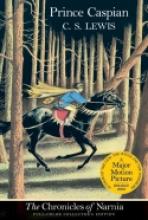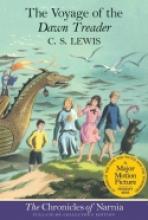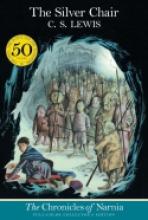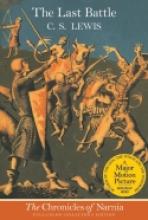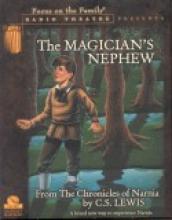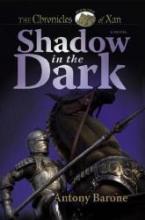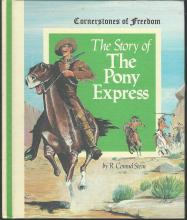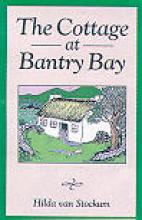No name
Prince Caspian
The author puts you right in middle of a thrilling adventure; made more mysterious because children now are looking upon their previous adventures as "ancient history". For my oldest daughter, reading this in early grade school kindled an interest in history and a reverence for "old things" that has remained quite strong years later.
The Voyage of the Dawn Treader
The Silver Chair
Back to the plot... the young prince is being held captive, by flattery and brainwashing in an underground kingdom, out of the light of the sun. As with other books in this series, there is a fascinating meld of themes from classical literature and Christian virtues and ideas. This one in particular is reminiscent of Plato's "Cave Analogy". The allegory and adventure are both very strong as the two children and some interesting Narnia natives help to overthrow this evil kingdom.
The Last Battle
Clearly the series, in addition to being an entertaining story to read (and probably a lot of fun for the author to put together) are a way of looking at many of the big issues in the history of our own world in miniature, and in a way that children can grasp. On a much simpler level, the stories help children in forming their ideas of right and wrong, the meaning of character and in wanting the good people to choose good and the bad people to be punished. This series comes very highly recommended by both Catholic and Protestant educators, clergy, parents and theologians.
Focus On The Family Radio Theater - The Chronicles of Narnia
Each story, although abridged, is masterfully told. The characters are well-formed and the sound effects are terrific. Having read all of the Narnia series aloud, and loved them, our family had very high expectations. The audio version of these classics fully lived up to our expectations.
Each book is approximately two hours [or more] of listening time. The audio versions of the Narnia books are an excellent purchase!
Focus On The Family Radio Theater - The Chronicles of Narnia (additional review)
Shadow in the Dark
The Story of the Pony Express
Although I expect that this series was designed for mid-grade school, my younger children have still found it to be very interesting for read-alouds. The story of the Pony Express tends to be one of rather high interest for young children, but one that is given very brief mention in most history textbooks. I found it very interesting to discover that the Pony Express only ran for a year and a half, how it was affected by the California Gold Rush and the Civil War and how it paved the way for running of telegraph lines coast to coast which made the service obsolete. Several rather colorful figures, including Buffalo Bill and Wild Bill Hickok worked for the Pony Express and Mark Twain wrote about his brief encounter with a Pony Express rider while journeying on a stagecoach.
The Cottage at Bantry Bay
The O'Sullivans are poor, but their home is filled with love. The older children, Michael and Brigid, take a journey through the Irish countryside to sell the family donkey for their Father. Along the way, they rescue a mischievous dog who leads them to an unusual treasure. The young twins, Liam and Francie are adventurous and mischievous - imagining themselves in the roles of heroes of Irish folklore.
It's an excellent read aloud story for the family or could be handled solo by a 9 or 10 year old. Hilda van Stockum is a great storyteller; all-the-while weaving a great deal of faith and wisdom into a lively glimpse of Irish culture.

